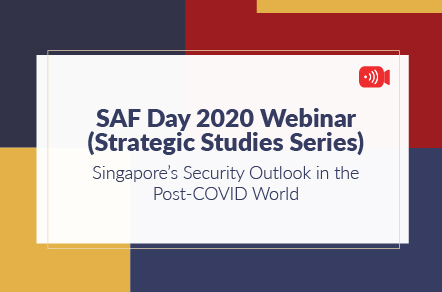

The Centre of Excellence for National Security, RSIS, organised a webinar on “Protests, Participation, Fake News: What’s Going On?” on 15 July 2020.
Dr Peter Bergen, Vice President for Global Studies and Fellows at New America, outlined the current situation in the United States. Recently, President Donald Trump was accused of further dividing the US society by threatening military action in response to protests that followed the death of George Floyd. As the country goes to polls in November, domestic challenges are expected to prevail.
Dr Colin Clarke, Senior Research Fellow at The Soufan Center, observed that recent incidents in the United States and beyond indicate that extremism is more complex than ever. Demonstrations over the death of George Floyd have shown various streams of anti-state movements. Some have a propensity for violence and others seek to infiltrate mainstream politics by running for elections. There are significant overlaps between various extremist ideologies like the far-right and white supremacism, complicated by the role of disinformation, which make contemporary developments more challenging to comprehend.
Mr Graham Brookie, Director of the Atlantic Council’s Digital Forensic Research Lab (DFRLab), noted that there is convergence online across topics related to the pandemic and protests for racial justice in the United States. The subject of terrorism was used as part of a disinformation campaign during racial justice protests, with far-right actors attempting to portray those on the extreme left as terrorists. The pandemic has amplified fringe anti-state voices such as those on the far-left and far-right, and groups like vaccine sceptics, reaching broad audiences worldwide and potentially impacting political developments.
The webinar closed with a discussion on the realities of racial tensions and potential flashpoints, and their relationship with disinformation and social media in the lead-up to the November 2020 election.




















